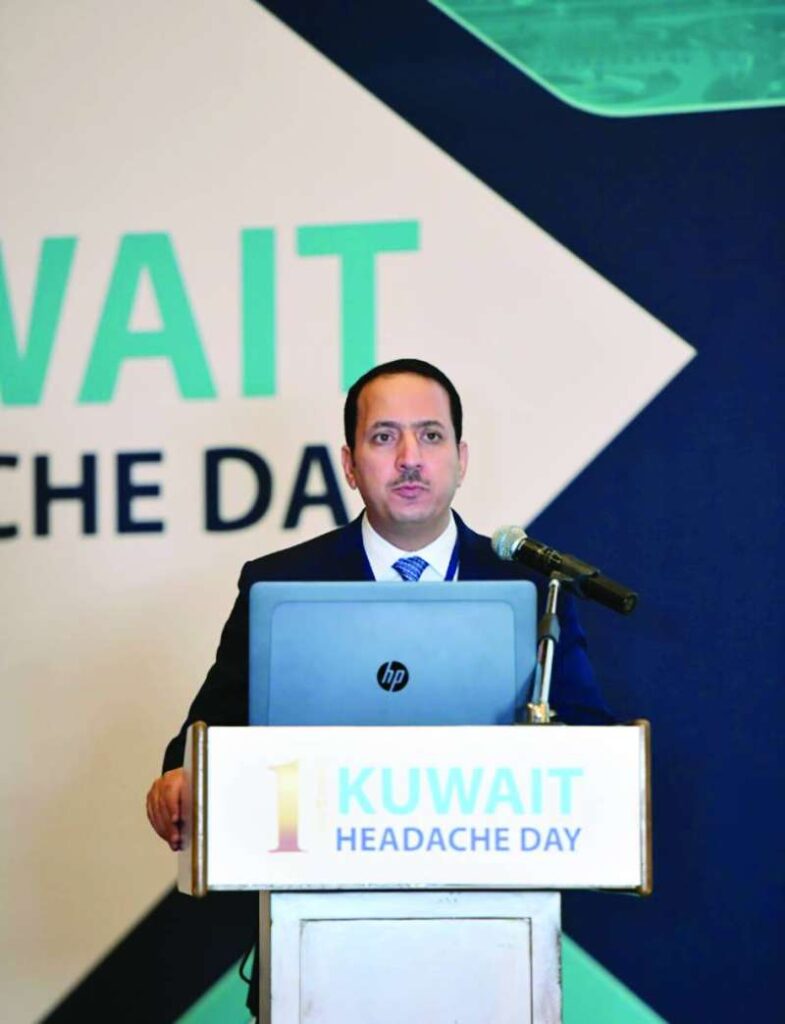21/11/2023
21/11/2023
KUWAIT CITY, Nov 21: Dr. Jassim Al-Hashel, the President of the Kuwait Neurological Association and a Professor of Neurology, emphasized the significant impact of migraines on the nervous system, leading to decreased productivity for individuals and institutions.
He highlighted the economic consequences of this decline, especially considering the high incidence rate of migraines in Kuwait, which has reached 23 percent. In response, Dr. Al-Hashel stressed the urgent need to educate healthcare professionals, particularly in the fields of neurology and family medicine, reports Al-Rai daily.
These remarks were made during the inaugural Kuwait Headache and Migraine Conference, where Professor Simona Sacco, a researcher and contributor to headache science legislation and laws, was a distinguished guest.

Dr. Al-Hashel attributed the increasing prevalence of migraines to technological advancements, citing the improper use of smartphones and computer screens. He also noted the influence of unhealthy eating habits, extensive electronic device use, and the proliferation of fast-food restaurants.
Discussing the role of government and private institutions in addressing the issue, Dr. Al-Hashel emphasized the commonality of migraines, affecting 23 percent of Kuwaiti society. Migraines, often accompanied by nausea and light sensitivity, are particularly challenging for women, especially during specific periods. Dr. Al-Hashel stressed the importance of raising awareness about migraines, as they significantly impact vital functions.
Regarding the responsibility of institutions toward their employees, Dr. Al-Hashel highlighted ongoing efforts by the Kuwait Neurological Association to promote awareness. Major companies, such as Kuwait Petroleum Company and Gulf Insurance, have designated awareness days for employees to learn about migraines, their symptoms, and preventive measures. The focus is on educating family doctors, considered the first line of defense, and parents, given the increasing number of children suffering from migraines.
Dr. Al-Hashel cautioned against the excessive use of painkillers, as it can lead to chronic headaches. Instead, he stressed the importance of correct medication and early diagnosis, particularly in children, where delayed diagnosis may impact academic productivity. Weather changes were also identified as potential triggers for migraines, but Dr. Al-Hashel emphasized that control measures are available.
In conclusion, Dr. Al-Hashel emphasized the need for accurate diagnosis, timely treatment during an attack, and adherence to preventive treatments, which may include pills, injections, or Botox.
Acknowledging individual variations in treatment response, he underscored the importance of self-management, including avoiding triggers, maintaining a regular sleep schedule, reducing caffeine intake, and ensuring sufficient water intake, which he identified as a crucial method for reducing migraine attacks.


